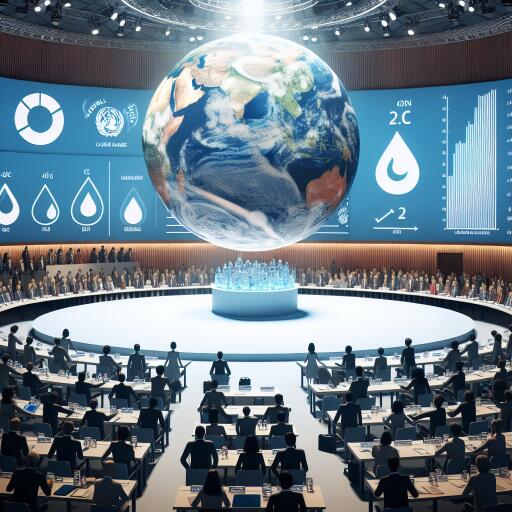
Water is in the Spotlight at the UN Climate Summit. Here’s Why That Matters
Water is the essence of life on Earth, playing a critical role in maintaining our planet’s health. Freshwater ecosystems are vital because they absorb carbon dioxide, a key contributor to global warming, and help communities adapt to environmental challenges. However, the balance of clean water availability and the natural systems that maintain it are increasingly threatened by climate change, often receiving insufficient attention in global climate discussions.
This scenario is about to shift at the United Nations Climate Change Conference, commonly known as COP29. On November 21, the COP29 Presidency, represented by Azerbaijan, will introduce the Baku Dialogue on Water for Climate Action. This initiative is a structured series of annual conversations designed to take place during the UN climate summits. It has been developed with backing from the United Nations Environment Programme (UNEP), the UN Economic Commission for Europe, and the World Meteorological Organization.
The aim of these dialogues is to create a platform where governments, businesses, and various organizations can maintain a focused conversation on the importance of water in the broader discussions about climate change, biodiversity loss, and pollution.
In recent years, extreme weather events attributed to climate change have spotlighted the crucial role of water management. From prolonged droughts to violent floods, the impact on water systems is evident and escalating. As climate change progresses, efficient water management and the protection of freshwater ecosystems emerge as paramount factors for ensuring societal and ecological resilience.
The Baku Dialogue is expected to illuminate this core challenge, providing a forum for sharing insights and strategies that prioritize water in climate-related policies and actions. By raising the profile of water within these discussions, stakeholders hope to foster collaborative solutions that address these interconnected threats.
Water’s capacity to act as a buffer against the destructive forces of climate change makes it indispensable for shaping a sustainable future. Natural ecosystems, including wetlands, rivers, and forests, function as crucial carbon sinks, further highlighting their importance in environmental strategies. However, these benefits are compromised as global temperatures rise and human activities increasingly strain these systems.
By formalizing water discussions at the annual COP summits, the Baku Dialogue seeks to redirect attention towards preserving our planet’s water resources. It’s about creating and implementing strategies that reinforce the natural processes keeping these ecosystems intact and functional.
The outcomes of these dialogues will likely drive enhanced international cooperation and coordinated efforts, recognizing that water is not merely an environmental issue but also a socioeconomic one. Efficient water management impacts agriculture, industry, health, and livelihoods, crossing political boundaries and affecting global stability.
Through comprehensive engagement with water issues, the expectation is that the international community will develop robust frameworks that integrate water considerations into every aspect of climate discourse—from carbon reduction commitments to adaptation strategies and resilience-building initiatives.
Ultimately, highlighting water within the climate summit framework is about acknowledging its foundational role in sustaining life and maintaining the delicate balance of our planet’s environment. In an era of climate uncertainty, centering water in climate discussions not only addresses critical environmental challenges but also enhances the prospects for sustainable development and security worldwide.





Leave a Reply